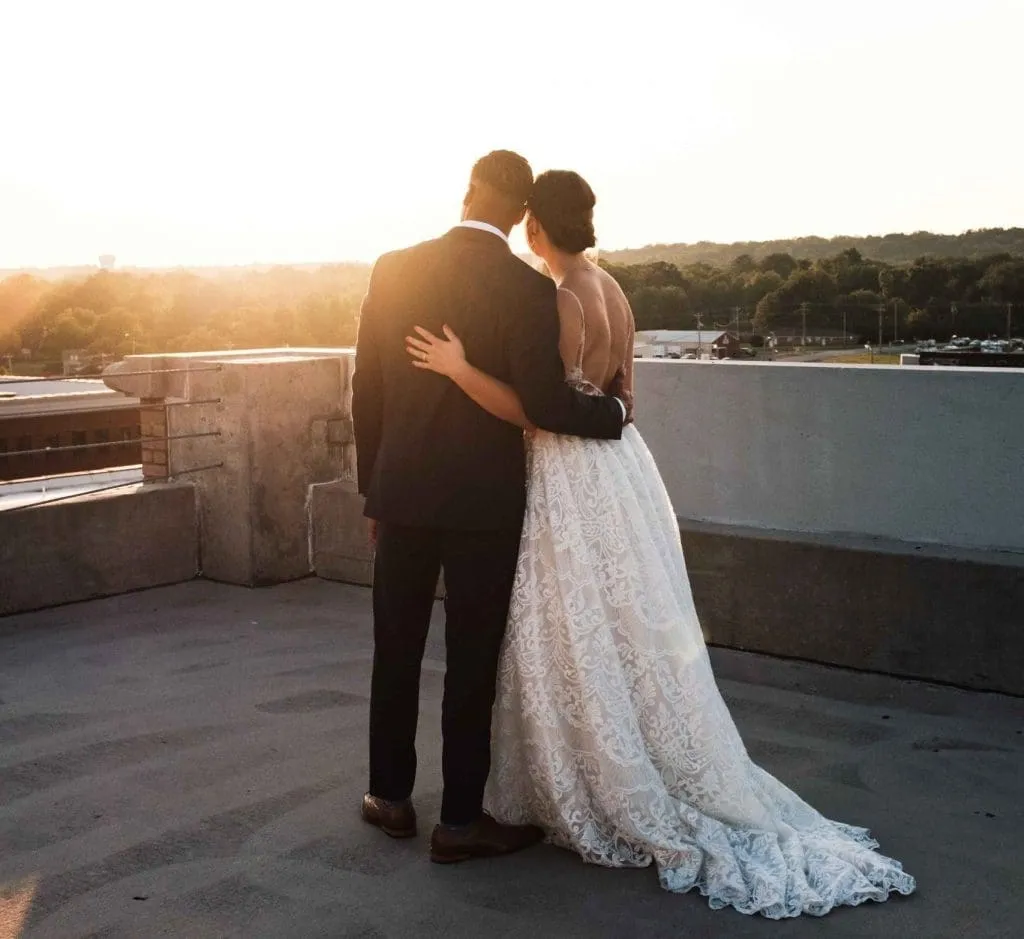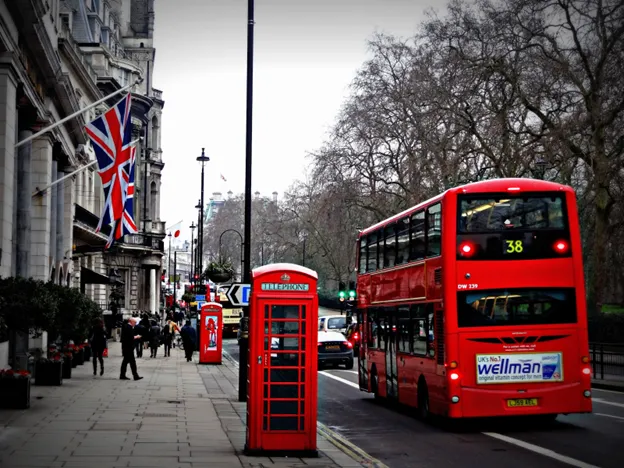FLR (M): Further Leave to Remain for Spouse, Partner or Child
If you’re in the UK on a Family visa that’s about to expire, you will have to apply for an extension using FLR (M).
For more information about visa extensions, FLR(M), and any other questions you might have about UK visas and living in the UK, speak to one of our trusted immigration advisers on +44 (0)333 414 9244 or contact us online.
Read our 1001 reviews
What is Further Leave to Remain?
FLR, or further leave to remain, is a term that refers to the act of extending a visa that is about to expire.
There are three different types of FLR in the UK. Which one you need will depend on which visa you’re currently on.
FLR(IR) is used for a variety of different specific visa extensions, such as for those on an Ancestry visa, parents of a child student, domestic workers in a private household, and more.
FLR (FP) is used to extend visas on the basis of your family or private life, most of which cover visas granted under human rights grounds.
FLR(M) is used for family members of British or Irish nationals or those with settled status in the UK to extend their visas for another 30 months. These include those who are in the UK on Family visas, such as the Spouse visa.
In this article, we will be going more in depth into FLR(M) and how to apply for it as a spouse, partner or child.
What is the Distinction Between Further Leave to Remain and Indefinite Leave to Remain?
FLR is a temporary extension to an person’s immigration status which allows them to remain in the UK for a limited period of time. In contrast, Indefinite Leave to Remain allows a person to live, work and study in the UK without any restrictions and without a set time limit.
Who Can Apply for FLR (M)?
Requirements for Spouses and Partners
In order to apply for a visa extension with FLR (M) as a spouse or partner, you must be the spouse, civil partner, or unmarried partner of at least two years to someone who is any of the following:
- British citizen or Irish citizen
- A person with settled status in the UK, such as with indefinite leave to remain, settlement or pre-settlement under the EU Settlement Scheme or proof of permanent residence
- A person with a Turkish Businessperson visa or Turkish Worker visa
- A person with refugee status or humanitarian protection in the UK
You should have already fulfilled this requirement when you applied for your first initial Spouse visa application from outside the UK.
You must also still comply with all of the original eligibility criteria set out when you first applied for your visa, such as the requirement for your relationship to be genuine (such as providing a marriage certificate) and meeting the financial requirement.
You may also have to prove your English language skills again when applying for FLR (M).
Requirements for Children
In order to apply for FLR (M) as a child, you must meet one of the following criteria:
- Your parent has been granted leave to enter or remain as a partner or parent of a person who:
- Is present and settled in the UK
- Has pre-settled status under the EU Settlement Scheme
- Has a Turkish Businessperson visa or Turkish Worker visa
- You are applying to remain in the UK with a person who has been granted leave to remain on the basis of their family or private life in the UK
- There are compelling reasons to stay in the UK and suitable arrangements have been made for your care
You must also still comply with all of the original eligibility criteria set out when you first applied for your visa. For example, if you’re under 18 and were born outside of the UK, you must not be married or in a civil partnership, and you must not lead an independent life.
English Language Requirements for FLR M
Most of the requirements for an FLR (M) visa extension are similar or identical to when the visa was initially issued.
However, if you were granted an initial Spouse visa, you may need to submit new proof of your English language skills if you wish to extend your visa and stay in the UK for more than 2.5 years.
This is because an FLR (M) Spouse visa extension requires at least an A2 level on the Common European Framework of Reference for Languages (CEFR).
This is compared to the threshold for the initial Spouse visa, which was one level lower, at A1.
If you passed an approved test at A2 level or higher for your initial Spouse visa, you may use this test result in your FLR (M) application as long as your test certificate hasn’t been withdrawn by the provider.
Otherwise, you will have to pass another English language test at A2 level or higher to extend your Spouse visa with FLR (M).

Financial Requirements for FLR (M)
The financial requirements for FLR (M) are largely the same as the financial requirements of your Spouse or Family visa when you initially applied.
In most cases, this will be a combined minimum income of £29,000 per annum between you and your spouse or partner.
The minimum threshold will be increased if you have any children. You will need to prove that you have an extra £3,800 a year for your first child, and an extra £2,400 a year for each additional child after your first.
You may be able to use a variety of different sources to prove that you meet the minimum income threshold, such as cash savings, pensions, or income from sources other than employment, such as property rentals or dividends.
For children, the sponsor parent or parents must also prove that they meet this minimum income threshold.
Note that you will not have to prove that you meet the minimum income requirements if your sponsor receives certain benefits, such as the Disability Living Allowance or Armed Forces Guaranteed Income

When Can I Apply for FLR (M)?
You must apply for a Family visa or Spouse visa renewal under FLR (M) before your current visa expires.
However, it’s recommended that you submit your FLR (M) application no more than 28 days before your visa expires.
This is because applying for FLR (M) earlier than this may result in you having to apply for two visa extensions in order to meet the five year residency requirement for indefinite leave to remain (ILR).
Ensuring that you apply for FLR (M) in the last 28 days of your visa’s validity will ensure that you only have to apply for one instance of FLR (M) in order to be eligible for ILR (assuming that you are on the five year pathway to ILR).
You won’t have to worry about your visa expiring while the Home Office is processing your application. As long as you submit your application before your visa’s expiry date, you will be able to stay in the UK until you get a decision on your FLR (M) application.
How Do I Apply for FLR (M)?
You will need to apply for FLR (M) online through the Gov.uk website.
You must be in the UK on a valid Spouse visa or Family visa in order to apply.
As part of the application process, you will have to give a variety of information about yourself and any dependent children who are applying with you.
You will also have to give information about your spouse, civil partner, unmarried partner or parent who will be sponsoring you to remain in the UK.
Take care to ensure that you have filled out all of the relevant sections in the FLR (M) form correctly and accurately. You will also need to ensure that you are using the most up-to-date version of the form and that you and your sponsor sign the declarations at the end of the form.
What Documents Do I Need to Provide with FLR (M)?
You will need to provide the following supporting documents with your FLR (M) form:
- Your current passport or other valid travel ID
- Copies of the photo page and any visa or entry stamps in your previous passports
- A copy of your biometric residence permit, if you have one
- Proof of your spouse, partner or parent’s immigration status
- Proof of your relationship with your spouse, partner or parent
- Details of any criminal convictions
- Your national insurance number, if you have one
- Proof that you meet the minimum language requirements
- Proof that you meet the minimum financial requirements
Note that you must provide a certified translation of any document that is not in English or Welsh.

How Much Does it Cost to Apply For FLR (M) ?
Note that you may also have to pay some additional fees alongside this application fee, however.
It costs £1,048 to apply for a visa extension through FLR (M).
These include the immigration health surcharge, which will be £1,035 for each FLR (M) visa extension application.
You may also have to pay to take an English language test if you need to prove your language abilities again, as well as fees if you need to have any documents translated into English or Welsh.
What Are the Processing Times?
The standard processing time for FLR (M) is around 2 to 3 months.
However, you may be able to get your FLR (M) application processed quicker if you pay for the super priority processing service.
This service costs £1,000 and ensures that you will get a decision either:
- By the end of the next working day after your appointment with UK Visas and Immigration (UKVI), if your appointment is on a weekday
- By 2 working days after your appointment, if your appointment with UKVI is at the weekend or on a bank holiday
What Happens After I Apply?
After you submit your Family visa or Spouse visa extension application online, you will then be directed to a website where you will need to book an appointment at your nearest visa application centre.
This appointment is where you will provide your biometrics information in the form of your fingerprints and photograph.
After your appointment, your application will then be processed by the Home Office. You will then receive a letter in the post informing you of the decision that’s been made on your FLR (M) application.
If your application for further leave to remain is approved, you will normally be granted another 30 months’ worth of leave to stay in the UK. You will also receive your biometric residence permit within about a week after you receive your decision.
If your application for further leave to remain is refused, you will be informed of the reasons why in your decision letter. You will also be told what the next steps are, including if you have a right to appeal the decision.

What Can I Do If My FLR Application Is Denied?
If your FLR application is denied. The Home Office will send you a letter detailing if you can apply for an administrative review. If you can then you will need to do so within 14 days.
If you are not eligible for an administrative review, then you may be able to apply for a judicial appeal.
When facing a denial it is important to seek professional advice so that you are not forced to leave the UK and can successfully appeal the Home Office’s initial decision.
How Can IAS Help?
Many people in the UK will eventually need to apply for further leave to remain, Spouse visa UK and Family visa UK holders included.
It’s an essential part of meeting the requirements for indefinite leave to remain, as well as ensuring that visa holders still meet the legal requirements to remain in the UK under UK immigration rules.
If you’re a spouse, partner or child who needs to apply for a UK Family visa or UK Spouse visa extension under FLR (M), IAS can help.
We are expert and professional immigration lawyers with years’ worth of experience in working in UK immigration law. We can help you complete your Family visa or Spouse visa extension applications through FLR (M), guiding you through the process and advising you on how best to fill in the application form and assemble your supporting documents. Seeking help at this stage from our expert team could ensure you reduce application mistakes and enjoy a successful outcome.
If your application for a visa extension has been refused, we can also help with your Family or Spouse visa appeal, or work with you to ensure that your next application for a visa fully meets the Family or Spouse visa extension requirements.
For more information about the services we provide, and what we can do for you, reach out to us on +44 (0)333 414 9244, or contact us online today.
Table of Contents
Table of Contents will appear here.Table of Contents
Table of Contents will appear here.Legal Disclaimer
The information provided is for general informational purposes only and does not constitute legal advice. While we make every effort to ensure accuracy, the law may change, and the information may not reflect the most current legal developments. No warranty is given regarding the accuracy or completeness of the information, and we do not accept liability in such cases. We recommend consulting with a qualified lawyer at Immigration Advice Service before making any decisions based on the content provided.















